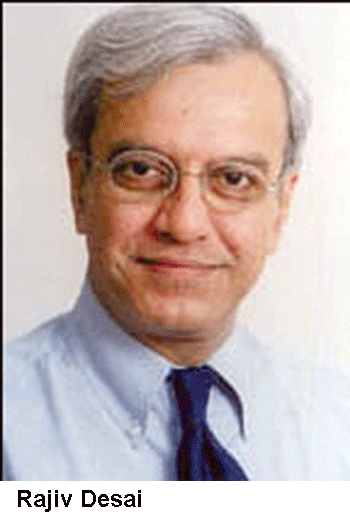 AS A GRADUATE STUDENT IN THE UNITED States, I was often intimidated by professors, especially those who taught comparative politics, international relations, economics and extolled the virtues of the ‘advanced economies’ and free markets, free trade, and free enterprise. Their lectures grated on my ears, filled as they were with praise of the centrally-planned Indian economy, nationalised industries, social banking and so forth.
AS A GRADUATE STUDENT IN THE UNITED States, I was often intimidated by professors, especially those who taught comparative politics, international relations, economics and extolled the virtues of the ‘advanced economies’ and free markets, free trade, and free enterprise. Their lectures grated on my ears, filled as they were with praise of the centrally-planned Indian economy, nationalised industries, social banking and so forth.
My belief at that time was that leaderships committed to equality and liberty, rather than economic growth and periodic elections, would prove more effective. I believed the colonial experience of the third world, far from inculcating enlightened values, was likely to have generated cynicism. The prevailing ideology of that era focused on a concept known as ‘political development,’ a state of grace which required all nations to model themselves on Western countries. The parameters of resemblance included democracy in which elections and peaceful transfer of power were key signposts, complemented with laissez-faire economics.
Over the years, many developing nations did indeed begin to resemble first world economies, providing a degree of freedom for markets and business. There was also widespread embrace of democracy in the sense of regular elections. As such, all the superstructure markers of free markets and democracy were installed. But true to my concern in those graduate classes, commitment to a liberal and egalitarian social order was missing.
Nowhere was this better illustrated than in India where far-sighted founding fathers adopted a Constitution that provided ballast to classical liberalism. Even then, cynical political formations built around regressive beliefs sprouted to challenge the liberal values of the Constitution.
In the first instance, the challenge came from doctrinaire Left political parties still hung over from the Cold War. But in recent years, however, recourse to divisive religious bigotry has helped its propagandists reap handsome dividends. A case in point: the battle being waged within Delhi’s showpiece Jawaharlal Nehru University between students and faculty on one side, and the government-backed university administration appointed to push the ruling BJP/NDA government’s hindutva agenda. My sympathies are unhesitatingly with the students and their teachers.
But let’s also understand that the agenda of JNU’s students and teachers is far from liberal. In their azaadi narrative, they pay lip service to classical liberalism. While they are inalterably opposed to insidious, creeping hindutva, it is also clear they allow no form of dissent against the dominant Marxist narrative of JNU. As such, their commitment to classical liberalism is suspect and their economic development prescriptions are likely to be statist, exactly what they have been all these years.
There’s an element of disingenuousness in the liberal left protest against the BJP/Modi government’s effort to implant its hindutva ideology on the JNU campus. All these years and to this day, JNU has been an incubator for Marxist propaganda opposed to the neo-liberal agenda of “liberalisation, privatisation, and globalisation”.
Amazingly, hindutva was allowed to co-exist in the Marxist ecosystem of JNU. This JNU conundrum is a perfect illustration of the dilemma that French philosopher, Jean-Francois Revel captured so convincingly in his book, Without Marx or Jesus (Doubleday, 1971). According to the subtext, these primordial forces have historically constituted the biggest challenge to classical liberalism.
In newly-independent India, adoption and enactment of a secular Constitution pre-empted illiberal ideologies and practices. Nevertheless, the twin pulls of Marxist ideology and religious bigotry persisted, growing like weeds in a garden. They produced a leadership of ideologues pushing an economic development blueprint in which the sovereign state is the dominant player.
Adoption of Left development nostrums led to rapid economic decline and prompted political mobilisation along religious lines. The leaders of this mobilisation were individuals sworn to usurping and preserving power, patronising business cronies and supporters, and rejecting the secular Constitution. In recent years the rise of the religious Right and the BJP in particular, has distorted the harmonious themes of Hinduism: a live-and-let-live tolerance; a belief system that emphasised the spiritual over magical; an ethos that managed conflict between the individual and collective.
On the JNU campus and in much of the nation, the struggle between ideology and religion has pushed classical liberalism to the margins. The clash between the intellectual stimulus of Marxism and the neanderthal instincts of hindutva, is likely to discredit both sides, and offers hope that the classical liberal values embedded in the Constitution will re-emerge as the preferable alternative.
In these cynical times, such hope is certain to be dismissed as naive and unreal. But it’s useful to remember that only optimism has helped post-independence India manage poverty and conflict all these years.
(Rajiv Desai is president of Comma Consulting and a well-known Delhi-based columnist)